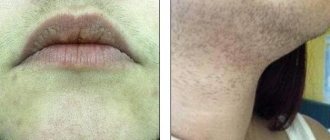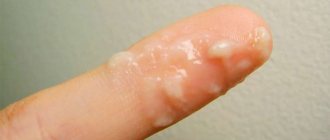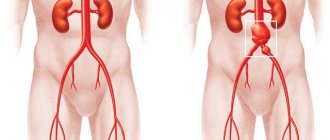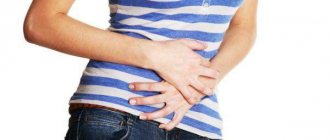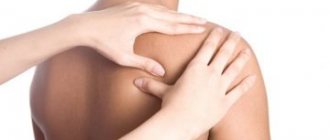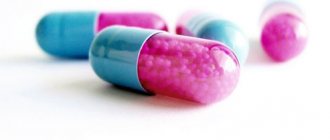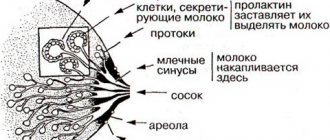What processes in the mouth can cause a feeling of bitterness?
The causes of a bitter taste in the mouth must begin to be looked for in the condition of the person’s oral cavity and teeth. Admit it, we go to the dentist when we can no longer bear the toothache. In the meantime, it was unstable, caused by cold or hot food, made it possible to sleep at night, we tolerate it and try to cope with rinsing.
But the onset of inflammation in the tooth pulp, surrounding tissues, and gums has already appeared. Pathogenic flora multiplies in the mouth. The natural protection of salivary lysozyme is not enough. In the salivary glands, the production of necessary substances fails. Therefore, the tongue feels dry and an unpleasant coating appears in the mouth.
Treatment at the dentist consists of placing a filling, removing or prosthetizing diseased teeth, and physiotherapy. Special materials and medications are always used. A bitter taste in the mouth can be the result of an allergic reaction of the oral mucosa to dental materials, impaired innervation of the tongue, where taste buds are located.
Perhaps the installed filling or crown causes mechanical damage and irritation of the tongue, followed by glossitis, gingivitis, and stomatitis. Most often, upon re-examination, doctors detect an inflammatory reaction around the treated tooth (periodontitis), signs of periodontal disease. This is accompanied by a constant feeling of bitterness in the mouth.
If the crown is made of metal and reacts when combined with a food composition, then the patient feels a metallic taste from any food.
Treatment
The fight against duodenogastroesophageal reflux, or the reflux of bile into the oral cavity, is based on eliminating its original cause. For mild functional disorders, lifestyle adjustments and taking certain medications are sufficient. Sometimes treatment, for example, for gallstone disease, can be surgical.
Important! Choleretic herbs should not be used for reflux of bile into the esophagus without proper examination. In the presence of calculous cholecystitis, their use can lead to aggravation of the disease, in particular to biliary colic.
The tactics of drug therapy are determined individually by the attending physician. Main groups of auxiliary drugs:
- Gastrointestinal motility stimulants. Representatives: Motilium, Domperidone.
- Products based on ursodeoxycholic acid (Ursosan, Ursofalk). They reduce the damaging effect of the contents of the duodenum.
- Antacids (Almagel, Maalox). They bind bile acids and activate the production of “protective” factors of the stomach: mucin, bicarbonates.
- Proton pump inhibitors (Omeprazole, Pariet). Prescribed for hypersecretion of hydrochloric acid.
What diseases of internal organs cause symptoms?
If everything is in order in the oral cavity, then you need to pay attention to the pathology of the digestive organs, primarily the liver, bile ducts and stomach. Liver cells produce bile necessary for digestion. It is sent through the excretory system to the gallbladder for storage.
As necessary, it is pushed through special ducts into the duodenum. Congestion during biliary dyskinesia leads to the backflow of part of the contents with bile into the stomach, and from it into the esophagus and mouth. If the sphincters are weak at night, the contents are belched higher, and the person feels a bitter taste in the mouth. The condition is often associated with the habit of sleeping on the left side and on a low pillow.
Among the symptoms of impaired transport function of the bile ducts are found:
- dull pain in the right hypochondrium or a feeling of heaviness;
- bloating;
- yellowing of the skin and sclera;
- dark urine;
- dense yellowish-gray coating on the tongue.
If stagnation of bile is caused by the formation of a stone in the bladder or passages, then the pain is severe and paroxysmal. They radiate to the back, right shoulder blade, and lower abdomen. Accompanied by diarrhea, nausea, vomiting and bitterness.
Men feel bitterness in their mouths when they have a hangover.
The habit of eating a lot of fatty, fried and meat foods, hot seasonings causes a disruption in the innervation of the gallbladder and sharply increases the load on the liver. After such a large meal, signs of dyskinesia appear. Especially if the person had a very heavy dinner.
When chronic insufficiency of the esophageal sphincters develops, the pathology is called gastroesophageal reflux disease. Patients 1–2 hours after eating experience belching with sour-bitter contents (acid is added in high levels in the gastric juice), heartburn, and nausea. The condition worsens when bending forward or doing physical work.
When lying down, patients experience coughing and shortness of breath. Severe pain in the epigastrium and behind the sternum, very similar to angina pectoris, is possible. Disturbances in the functions of the stomach due to gastritis, peptic ulcers, pyloric stenosis, accompanied by increased secretion of hydrochloric acid, can cause a slowdown in the evacuation of the bolus of food into the intestine.
This means that the overcrowded organ is trying to cleanse itself. Patients experience bitterness in the mouth, nausea, heartburn, and vomiting of sour contents. The condition worsens during stressful situations, after taking certain medications.
Causes
The factors that provoke this symptom are numerous. The pathological basis that causes the reflux of bile into the esophagus can be:
- Chronic cholecystitis, including calculous;
- Biliary dyskinesia;
- Hiatal hernia;
- Moderate and severe obesity (due to increased intra-abdominal pressure);
- Primary failure and/or dyskinesia of the pylorus, cardia, lower esophageal sphincter;
- Neoplasms compressing the gastrointestinal tract.
Is it always a matter of illness?
Even in relatively healthy people, bile sometimes refluxes into the esophagus. Main reasons:
- Errors in diet. For example, we are talking about excessive consumption of animal fats and coffee.
- Use of certain drugs. Reflux can occur with irrational use of muscle relaxants.
- Heavy physical activity after meals. The produced bile is thrown into the oral cavity due to an increase in intra-abdominal pressure.
- Bad habits. Abuse of alcoholic beverages leads to a mismatch between the gallbladder and the sphincter of Oddi and, consequently, to cholestasis. A similar pathogenetic mechanism is observed with smoking.
- The release of bile into the oral cavity during sleep occurs in late pregnancy. This is due to compression of the biliary tract by the fetus, as well as a decrease in gastrointestinal motility due to the production of progesterone (“pregnancy hormone”).
The factors considered do not always require serious medical or surgical intervention. This is explained by the functional nature of bile reflux. Most of these reasons can be completely eliminated or modified independently.
If children feel a bitter taste in their mouth
If a child of a conscious age complains about the bitter taste of food, and the younger ones simply refuse their favorite porridge, then it can be assumed that he is infected with intestinal parasites (helminths, Giardia).
Parasitic infections are very common in children's groups. Helminth infections are transmitted into the mouth through dirty hands, toys, unwashed vegetables and fruits, and shared underwear. The child sleeps poorly, complains of itching in the anus, loses appetite, and loses weight. Skin rashes such as urticaria may appear.
Any food seems bitter to a child
Some parasites are capable of crawling from the intestines into the bile ducts and causing a cessation of bile flow, stagnation and all the previously mentioned symptoms. Giardia lives well in the bile ducts, causing inflammation and dyskinesia.
Parasites block the absorption of essential substances through the intestines, so stool is disrupted, and the body does not receive the necessary vitamins even if they are in excess in the diet. A child often gets sick with viral infections due to a decrease in immunity.
Directions of treatment
In most cases, therapy is medicinal and conservative. The goals of reflux treatment are as follows:
- Protection of the mucous membranes of the esophagus from aggressive influences.
- Neutralization of aggressive components of gastric juice and bile.
- Increased speed of passage of a bolus of food through the esophagus.
- Increased tone of the pylorus (lower esophageal sphincter).
- Increased activity of the cardiac gastric zone.
Surgical treatment is used only in difficult cases:
- Correction of complex complications causing bile reflux. For example, hiatal hernia.
- Cases when the disease has reached its final stage. When diagnosing Barrett's esophagus.
Impact of hormonal disorders
The dependence of the occurrence of biliary dyskinesia on the functioning of the thyroid gland and the secretion of thyroid hormones has been established. Spasm can be caused by adrenal hormones (adrenaline, norepinephrine). A stagnant process in the bile ducts is manifested by a feeling of bitterness in the mouth. In diabetes mellitus, the condition of the pancreas in patients contributes to digestive disorders.
Along with the bitter taste, they have signs of hyperglycemia: sweating, short-term blurred vision, a burning sensation in the feet and palms. Other causes include toxicosis during pregnancy, chronic poisoning of smokers with nicotine, acute food poisoning, and tumor processes in the gastrointestinal tract.
Drug therapy
In most cases, the conservative treatment regimen consists of taking the following drugs:
- Proton pump inhibitors. These are drugs such as Omez, Gastrozol, Ranitidine, Pepticum.
- Antacids (protect mucous membranes from damage, reduce the secretion of secretions by the gastrointestinal tract). "Almagel", "Maalox", "Gastrofarm".
- Selective drugs that enhance evacuation functions and accelerate the flow of bile. These are Cisapride and Motilium.
- To eliminate bitter belching and normalize bile secretion, use Ursosan, Ursofalk, Ursoliv.
- To relieve the patient of pain, doctors prescribe well-known antispasmodics (painkillers). These are “Baralgin”, “No-shpa”, “Spazmalgon”. In particular, they are prescribed as injections to reduce stress on the stomach.
Who is more likely to experience bitterness in the mouth?
Let's summarize and highlight a group of people with risk factors that provoke a temporary feeling of bitterness in the mouth. In other words, the symptom does not necessarily develop, but is very likely:
Symptoms of salivary gland diseases
- in case of traumatic injury (including dental procedures) in the oral cavity, inflammatory diseases of the gums, tongue, throat (laryngitis, sore throat or chronic tonsillitis, pharyngitis);
- tumors in the mouth, from the salivary glands, jaw bone tissue;
- halitosis is a disease of the oral cavity caused by massive proliferation of microorganisms, the main manifestation is persistent bad breath,
- diseases and injuries of the nose and ears (rhinitis, otitis, sinusitis), since inflammation from the mouth quickly spreads to them;
- the influence of medications on the quality and quantity of saliva secreted (after treatment with antibiotics, belladonna preparations, antihistamines, antispasmodics, St. John's wort, boron uterus), the symptom occurs with an overdose or individual sensitivity;
- installation of unsuitable dentures, reaction to filling material;
- any thick coating on the tongue caused by loss of fluid (dehydration), which promotes the growth of bacteria;
- pathologies of the liver, kidneys, biliary tract, stomach;
- endocrine disorders;
- with damage to nerve endings in the face and brain centers (neuritis of the facial nerve, multiple sclerosis, parkinsonism, conditions after a stroke, brain injury);
- atrophy of the taste buds of the tongue papillae in older people, with glossitis, impaired sensation in the mouth in male alcoholics, smokers, people with drug addiction;
- consequences of stress.
Banal overeating
Excessive load on the digestive tract, even for a pleasant occasion (corporate party, family holiday) does not always go unnoticed and unnoticed. Especially if we are talking about a middle-aged or elderly person, or a child. It is not difficult to connect the fact of a large feast yesterday and poor health today. Against the background of overeating, the following are noted:
- unpleasant taste in the mouth (associated with dysfunction of certain digestive enzymes);
- a feeling of heaviness in the abdomen or moderate intensity pain of a diffuse nature;
- weakness and lack of appetite.
Overeating is distinguished from an acute infectious disease by the absence of fever, nausea and vomiting. It is clear that after a heavy meal, the digestive canal needs rest. You need to do the following:
- drink plenty of liquid (boiled or mineral water without gas);
- refuse to eat any food for a day or at least for a few hours;
- Follow a diet for several days: eat only cereals and boiled vegetables, exclude everything fried and spicy;
- To more quickly restore the functioning of the gastrointestinal tract, you can take enzymatic preparations based on pancreatin for several days (until the condition normalizes).
After such dietary restrictions, the condition will quickly return to normal.
Why does it occur during pregnancy?
The general causes of a bitter taste in the mouth in women do not differ from those in men, but special conditions are created during pregnancy. In the early stages, women note that food suddenly becomes bitter and they want to eat something unusual (chalk, soil, leaves). This condition is a consequence of changes in hormonal levels.
In the body, for the safe development of the fetus, complete relaxation of the muscular layer of the uterus is necessary. It is caused by an increase in the production of the hormone progesterone. At the same time, progesterone reduces the tone of the esophageal sphincter and slows down the process of food transportation. Conditions for gastroesophageal reflux appear.
In later stages, bitterness is caused by congestion caused by the mechanical pressure of the growing fetus on the stomach. Taste perversions are of central origin and often depend on the presence of anemia in a woman and the nature of her diet.
Poisoning by toxic compounds
A person can encounter them in a chemical laboratory or in production (due to professional activity) or encounter them by accident - when using them in everyday life. For example, lead is found in car battery parts, and arsenic is found in various stains for rodents and insects.
Each of these highly toxic compounds has its own typical clinical symptoms, but it is the unpleasant bitter taste in the mouth, combined with symptoms such as headache and dizziness, that suggests acute poisoning. It is important to remember that poisoning can be not only acute, but also chronic, in which toxic substances penetrate the body over a long period of time and accumulate in the tissues.
You should immediately seek help from a medical facility, as toxic compounds can cause irreversible changes in important internal organs of a person and even lead to death.
Is there a bittersweet taste?
The connection between bitterness in the mouth and sweetness is one of the symptoms of diabetes mellitus, when pathology of the pancreas and liver simultaneously develops. The most common symptoms include:
- constant thirst;
- frequent urination with the release of a significant volume of urine;
- feeling of hunger with possible obesity or weight loss (depending on the form of the disease);
- weakness;
- the appearance of “cloudiness or veils” in the eyes;
- numbness and tingling in the feet and hands.
Examination of the tongue is mandatory in diagnosis
Bittersweet sensations in the mouth may occur:
- with significant consumption of sweets;
- in a state of depression, stress;
- pathologies of the stomach and intestines;
- trying to quit smoking;
- diseases of gums and teeth.
Toxicologists note a similar characteristic taste in case of poisoning with pesticides and phosgene.
Complications
Bitterness in the mouth, which remains unaddressed, may in the future be complicated by gastritis, cholecystitis, and pancreatitis. Diseases of the digestive system that occur in a chronic form are difficult to cope with even with professional help.
The symptom also leads to a gradual change in habits. Over time, taste buds lose their sensitivity, which is why a person ceases to feel the taste of food. In combination with other disorders, the condition leads to the development of psychological disorders, long-term depression and general deterioration of health.
Chronic diseases of the gastrointestinal tract can degenerate into oncological damage to organs, which threatens a person with death. To avoid health problems, you need to be attentive to the unpleasant symptoms that arise, including bitterness in the mouth. Timely response to alarm signals is the best prevention of chronic pathologies.
When does bitterness and acidity occur in the mouth?
Some patients suffering from chronic gastritis, peptic ulcers, and gastroesophageal reflux sometimes complain of a sour-bitter taste in the mouth. Only on the basis of this manifestation can one suspect, in addition to stomach disease, pathological changes in the liver and gall bladder. A full examination usually helps to establish the truth.
The sign worries people with caries, periodontitis, and inflamed gums. When microorganisms multiply in the oral cavity, they secrete acidic waste substances. In addition, the patient is bothered by toothache, the gums around the tooth are swollen, and there may be swelling of the cheek on the affected side.
Treatment with folk remedies at home
Natural preparations used at home to remove bitter taste should have the following properties:
- calming;
- choleretic;
- enveloping;
- immunomodulatory;
- anti-inflammatory.
The use of infusions, herbal decoctions, vegetable and fruit juices is no less effective than drug therapy. Using natural remedies without an accurate diagnosis can be harmful to your health.
Traditional medicine
Valerian pharmaceutical
The rhizomes of the plant contain a complex of substances that affect the reactivity of the nervous system and the tone of the smooth muscles of the stomach .
For medicinal purposes, it is used as an infusion: pour 2.5 tablespoons of dried, powdered root with boiling water (200 ml) and keep over a container of water heated to 100 degrees for 15 minutes. under the lid. Strain the cooled solution, add boiled water to 200 ml. Drink after meals 30 minutes later. 3 tablespoons each.
blue cyanosis
Its sedative effect is 10 times greater than that of valerian. Medicinal raw materials – dried, ground roots and rhizomes. Preparation: the raw materials filled with boiling water are placed in a water bath with a water temperature of 70-80 degrees. 15 minutes after boiling, the solution is allowed to sit for ¾ hours, after which it is strained. Treatment dose: ¼ cup after 30 minutes. after eating.
The combination of blue cyanosis and marsh cudweed is used in the treatment of gastric ulcers .
Peony evasive
An infused drink made from root and herb in a 1:1 ratio is used for neurasthenia and depression. The preparation of the medicine is similar to the infusion of blue cyanosis. Application: after 40 minutes. after eating, ¼ cup.
Common hop
For medicinal purposes, slightly unripe cones are used (3-5 days before full condition). 1 tbsp. l. powder is poured into a glass of hot water and placed in a container with heated water until it boils. After 10 minutes, the medicinal solution is placed on cooling. After straining, drink ¼ cup 3 times a day before meals.
A water infusion of hops helps with liver and gall bladder diseases . An overdose causes nausea, vomiting, and headache.
Teas used for bitterness in the mouth:
Vegetable raw materials (tablespoons):
- mint – 2;
- trefoil – 2;
- valerian (roots) – 1;
- hops – 1.
To get the medicine, 2 tablespoons of the mixture will require 2 cups of boiled water. Leave for 20 minutes. Drink ½ glass before meals in the morning and evening.
Ingredients (tablespoons):
- valerian root powder – 1;
- mint – 1;
- chamomile – 1;
- caraway and dill (seeds) – 1 each.
To obtain a drink, pour 3 teaspoons of the mixture with boiling water (200 ml), leave for 1/3 hour, strain. Take warm, 2 times half a glass: morning and evening.
Plants with choleretic properties
Silver birch
Raw materials – dried buds. Infuse for 15 minutes in a container of boiling water. To obtain a drink, take half a tablespoon of kidneys and a glass of heated boiled water. Take 100 milliliters on an empty stomach.
Angelica
Dry and grind the roots. Pour 3 tablespoons of boiling water (a glass) and leave in a water bath for half an hour after the start of boiling. Drink half a glass hot after meals.
Dandelion
The ground root is brewed with boiling water and placed in a water bath for ¼ hour. To do this, you will need a tablespoon of powder and boiled water (a glass). During the infusion process, it is necessary to constantly mix the water and root. The drink is taken warm, before meals, for at least 15 minutes, a third of a glass.
Celandine
The water tincture is used as prescribed by a doctor.
Method of obtaining the medicine:
- take 1 tablespoon of dried herb;
- pour a glass of boiling water;
- keep covered for 20 minutes;
- strain off the remainder.
Drink half a glass before meals in the morning and evening.
Marigold
The properties of herbal ingredients make it possible to use it for rinsing the mouth during inflammatory processes; it is used internally for peptic ulcers of the stomach and duodenum, liver and gall bladder.
Method for obtaining the drink: 5 tablespoons are steamed with a glass of boiling water for 15 minutes. Drink ¼ glass 3 times a day.
What causes a bitter taste in the mouth immediately after eating?
In the case of a clear connection between the feeling of bitterness in the mouth and food, physiological overload of the stomach and liver with “heavy” food for processing, which lingers in the organs for a long time and does not move further, should be excluded. It is worth paying attention to the quality of the products. A bitter taste can be a sign of food poisoning if food is improperly stored or cooked poorly. The sign indicates the beginning of intoxication.
It is preferable to buy local products
A similar reaction often accompanies the use of pine nuts and sea buckthorn oil as choleretic folk remedies. The most common reaction occurs in response to the purchase of nuts produced in China. There are known cases of severe poisoning and allergic reactions.
The test showed that such a useful product loses its shelf life during long-term transportation (the norm is a year for unshelled nuts, six months for peeled nuts if they are stored in vacuum packaging). The limitation is due to the oxidation and rancidity of fats in nuts. If they were stored in conditions of high humidity, together with substances with a strong odor, then the period is further reduced.
Acute intestinal infections
They are diverse and relevant for people of all age groups. The greatest likelihood of contracting an intestinal infection is observed in the warm season, when the shelf life of products becomes shorter, and sanitary and hygienic standards are not always fully observed. Among the possible transmission factors, the most relevant are: dairy products, salads, and confectionery products. Among the symptoms of acute intestinal infection, the most significant are:
- changes in taste sensations (bitterness is associated with the action of specific microbial toxins), dry mouth and complete lack of any appetite;
- repeated vomiting and prolonged nausea;
- increase in temperature (sometimes to quite high numbers);
- pain in various areas of the abdomen;
- liquid feces with admixtures of blood and mucus or, conversely, without impurities, but watery.
The main problems that arise during acute intestinal infections are dehydration and general intoxication of the whole body. Treatment is aimed at eliminating the resulting disorders. To do this you should:
- refuse to eat;
- drink a lot of neutral liquid, but in small portions;
- take a horizontal position and refuse any physical activity.
Medicines for intestinal infections should be prescribed by a doctor, since different microbial agents are differently sensitive (more or less) to certain antibiotics. In many cases, improper treatment of intestinal infections (typhoid fever, shigellosis) is fraught with the development of serious complications.
What causes bitterness in your mouth in the morning?
In addition to the above mechanism of reflux of bile in a supine state, you can add frequent night cough, obesity, systemic connective tissue diseases (lupus erythematosus, scleroderma). The lifting and jerking movements of the diaphragmatic muscles are involved in the mechanism of formation of duodenogastric reflux.
Other reasons:
- candidiasis in the oral cavity (fungal infection) - develops in cases of decreased immunity, after long-term treatment with antibiotics;
- chronic sinusitis, runny nose of infectious and allergic nature, tonsillitis.
During the night, pus is secreted into the nasopharynx, which causes discomfort.
How does bile reflux occur?
Functionally significant anatomical formations that form the digestive tube are separated by muscle sphincter. Food moves sequentially from the upper gastrointestinal tract to the lower. Normal contractile activity of the sphincters prevents the backflow of the contents of the digestive canal. With this pathology, bile enters the stomach from the duodenum. Casting is caused by several mechanisms:
- Sphincter incompetence. The muscle sphincter of the stomach and esophagus does not contract sufficiently, and therefore does not maintain proper isolation of the digestive sections even with consistent work.
- Functional motor disorders. The sphincter apparatus is not organically changed. There was a mismatch in contractile activity between the sections of the duodenum, stomach and esophagus.
- The physical disappearance of a natural barrier that prevents back casting. We are talking about gastric resection, in particular, removal of the pylorus.
Reflux is often combined with gallbladder diseases. This is explained by the direct connection between the contractile activity of this organ and the motility of the gastroduodenal zone (the area where the stomach enters the duodenum). The reflux of bile into the oral cavity is often observed in persons suffering from hypokinesia of the sections in question.
Diagnostics
Doctors of various specialties take part in the diagnosis: dentist, therapist, gastroenterologist, pediatrician, otolaryngologist, neurologist, endocrinologist. During the examination, the doctor needs to identify the true cause, the connection with the pathology of the liver, stomach, biliary tract, pancreas, and diabetes. It is impossible to focus only on the patient’s taste sensations. Objective signs are needed.
Coprology is used to judge the digestion of food, the presence of worms and lamblia
Be sure to do an examination of the oral cavity and tongue; you will need treatment for carious teeth and gums at the dentist. Blood tests are carried out for general indicators and liver tests, bilirubin, and urine diastase. To determine gastroesophageal reflux, an X-ray examination of the esophagus and stomach is performed with the introduction of a contrast agent. Muscle contractions are detected by a special sensor.
An ECG helps to distinguish bitterness in the mouth in diseases of the esophagus from myocardial ischemia. To exclude stomach disease, the most suitable method is fibrogastroscopy with simultaneous sampling of gastric juice and material for biopsy. Ultrasound of the abdominal organs can detect inflammation of the liver, pancreas, stones in the bile ducts, and tumors.
Prevention
Preventive measures against the occurrence of such manifestations include:
- complete cessation of bad habits;
- compliance with the gastroenterologist’s recommendations regarding nutrition;
- taking medications only as prescribed by a doctor and strictly observing the dosage;
- avoidance of stressful situations.
In addition, it is very important to promptly identify diseases that serve as a source of bile taste. To do this, you need to undergo regular examinations with a gastroenterologist and dentist.
How to get rid of the problem?
Only with medical help can you identify the cause and draw up a treatment plan for this unpleasant symptom. If a specific disease is diagnosed, then it should be treated and not rush into folk remedies. Smoking patients are advised to quit their bad habit forever. Many organs and systems of the body will receive significant relief.
During pregnancy, it is necessary to choose a suitable diet and nutrition regimen. If you still have bitterness in your mouth after childbirth, it is better to consult a doctor and tell about the problem. Dentists advise and treat local inflammatory diseases in the oral cavity (gums, tongue). The patient will be recommended to treat the mucous membrane with disinfectant liquids, vitamins, and local therapy.
For the treatment of gastroesophageal disease, diet is of great importance. You will have to give up fatty and fried foods, chocolate, strong coffee, citrus fruits, and alcohol. Increase the number of meals and reduce portions. Do not go to bed immediately after eating; have dinner no later than 18:00. With a sour-bitter taste in the mouth, medications that reduce the acidity of gastric juice (antacids) help.
If a parasitic infestation is detected in a child, short courses of treatment with intestinal cleansing are used. Then you should take a stool test three times to confirm the result. Oral candidiasis is treated with antifungal drugs, it is suggested to drink more water, and eat fermented milk products.
If food poisoning is suspected, an enhanced drinking regime is used to dilute toxins and remove toxic substances from the body. It is recommended to take enterosorbents (Smecta, Enterosgel, Polyphepan). You cannot treat with choleretic drugs or antidiarrheal drugs. It is necessary to allow the body to get rid of toxins through the intestines.
Probiotics and prebiotics will help restore intestinal flora after suppression by antibacterial drugs
For biliary dyskinesia, you need to know the type of disorder (hypotension or muscle hypertension). The prescription of medications depends on this. This also applies to taking choleretic drugs. The doctor selects the appropriate drug, taking into account the functioning of the liver cells and the patency of the ducts.
You should not take pancreatic enzymes on your own. The condition of the organ is judged by the test results. Surgical treatment is indicated if bitterness in the mouth is caused by cholelithiasis, attacks of cholecystitis, or tumor growth.
Removal of the gallbladder (cholecystectomy) is performed in two ways:
- classical laparotomy with opening of the anterior wall of the peritoneum in the area of the projection of the bladder - accompanied by fixation of the leg using the stitching method, removal of the bladder filled with stones or consisting of scars and inflammatory areas;
- laparoscopy - allows a small incision (0.5–1.5 cm) and punctures of the peritoneal wall, video equipment and technology are inserted into it for removal under the control of observation on the screen.
- The method is popular because healing is faster and there are no noticeable scars left. Not used if there is no confidence in the diagnosis or adhesive process.
Why is it important to get examined: main complications
The specified list of studies can push the patient away from the diagnostic search. Most often, rare complaints do not end with a trip to a gastroenterologist. Isolated cases of bile release into the oral cavity, as a rule, do not pose a danger. However, systematic, often asymptomatic, entry of the contents of the duodenum into the overlying sections is fraught with the development of serious complications. Among them:
- Gastroesophageal reflux disease. Recurrent pathology leading to predominantly damage to the lower esophageal region.
- Alkaline gastritis. Especially when bile is refluxed, the pyloric region suffers.
- Barrett's esophagus. Precancerous condition. Constant irritation of the mucous membrane leads to metaplasia - persistent replacement of some highly differentiated cells with others.
- Malignant neoplasms. These gastrointestinal tumors are characterized by particularly rapid metastasis and severe course.
Oral diseases
If pathogenic microorganisms enter a person’s mouth, this leads to problems with the gums and teeth. Against the background of infection, inflammatory processes begin. The components released by bacteria and fungi are toxic. They enter saliva, causing a change in its taste and composition.
As a rule, stomatitis, caries, periodontitis and other pathologies that are quite common in people lead to the appearance of bitterness in the mouth. In this case, the unpleasant bitter taste is most pronounced in the morning. In addition, some patients complain of pain and discomfort in the mouth, the appearance of ulcers on the palate and tongue, and other problems.
Prevention and healthy eating
Compliance with dietary nutrition allows you to relieve the load on the liver and strengthen it. During treatment, you should not eat baked goods, canned food, chocolate, spices, fatty and spicy foods. You should avoid eating heavy foods.
You need to eat at least 4 times a day. It is also necessary to control your drinking regime. Every day you should consume at least 1.5 liters of water. This figure varies for different seasons.
To ensure the flow of bile, it is important to relieve muscle spasm. To do this, take herbal teas and sedatives. You need to be able to relieve psychological stress.
Giardiasis
This disease appears from parasites that are found in the small intestine. They become fixed on the internal villi of the esophagus, leading to disorders. Therefore, a person feels bloating, rumbling, and mild nausea. All this causes inconvenience, so you want to get rid of the symptoms as quickly as possible.
Giardiasis affects well-being: sleep is disturbed, fatigue quickly sets in, and appetite disappears. Bitterness in the mouth is one of the noticeable signs of the disease. Only a doctor can prescribe effective therapy.
Diseases that cause bitterness
Acid reflux
Acid reflux, or gastroesophageal reflux disease, is a process in which acid in the esophagus rises to the throat and causes irritation and a bitter taste. This disease is caused by excessive consumption of fatty, spicy and junk food and is accompanied by hiccups, heartburn, belching and bloating.
Liver inflammation
The cause of inflammation or contamination of the liver can be cirrhosis, hepatitis, or abuse of bad habits.
The disease is accompanied by belching, heartburn, nausea, increased body temperature, change in urine color, and excessive sweating.
Bitterness on the lips is caused by the fact that liver cells produce bile, which enters the intestines, and from there rises up the throat.
Liver pathology can often be recognized by yellowing of the skin and coating on the tongue.
Stomach dyspepsia
This is a difficulty in digestion caused by overeating, eating disorders, or eating poor quality food. With dyspepsia, a person feels heaviness, bloating in the stomach, as well as shortness of breath and cough, which makes breathing difficult.
The disease may be accompanied by a strong odor from the mouth, unreasonable rumbling in the stomach, and loss of appetite.
Giardiasis
Giardiasis is a disease caused by parasites that live in the small intestine. Parasites attach to the internal villi of the esophagus, causing some disorders, which are manifested by bloating, rumbling, and mild nausea. Giardiasis also affects a person’s general well-being – sleep is disturbed, fatigue quickly sets in, and appetite disappears.
Diabetes
This is a disease of the endocrine system, which is also accompanied by blurred vision, sweating, and heat in the palms and feet.
Diabetes mellitus occurs due to increased blood sugar.
This level can be lowered by fasting, physical activity, and cooling the body.
Inflammation of the small intestine
Inflammation of the small intestine is caused by bacteria that cause an allergic reaction of the microflora. This reaction is provoked by an unbalanced diet, consumption of fatty and spicy foods, and lack of vitamins and beneficial microelements.
Inflammation is accompanied by belching, nausea, severe bitterness in the mouth and lips, unstable stools, constant drowsiness, and pain in the lower part of the stomach.
Inflammation of the gallbladder
Inflammation can be caused both by bacteria that disrupt the microflora of the esophagus, and by an unhealthy lifestyle - overeating, low physical activity, the presence of pathologies and decreased immunity.
Symptoms of inflammation are: dryness and bitterness in the mouth and lips, vomiting, heaviness in the abdomen and pain in the right side, fever and chills. In this case, you should immediately consult a doctor.
In addition to bitterness on the lips, there are other troubles, for example, the so-called jams in the corners of the mouth. In another way, this unpleasant disease is called angulitis.
Read about how to quickly cure angulitis here.
Some swelling on the gums is called gumboil. Find out what antibiotics are used for flux here.
Bile in the mouth and treatment of its causes
What to do about an unpleasant aftertaste? There are many ways to eliminate the feeling of bile in the mouth. Which one will be chosen should be determined in accordance with the cause of the disease. If liver function is impaired, you need to use drugs that will accelerate the flow of bile. At the same time, you should not burden the liver with heavy food and alcohol.
If the problem does not lie in the liver, treatment is carried out using other methods. It’s worth figuring out what ways there are to get rid of bitterness in the mouth.
Drug therapy
Choleretic drugs accelerate the flow of bile, eliminating stagnation. Such preparations contain leaves of dill, calendula, and immortelle.
Medications can be divided into several groups:
- agents that enhance bile production and promote the formation of bile acids,
- drugs that help reduce the tone of the biliary tract,
- bile stimulants,
- drugs that restore liver cells.
Only a doctor can prescribe such drugs, so you need to go to a clinic.
ethnoscience
Many folk recipes are designed to eliminate the problem of bile being thrown into the esophagus. Common foods such as tomato juice, cream and milk, and oatmeal normalize liver function.
You can use flaxseed oil, flaxseed jelly, honey and lemon.
Herbal treatment “GENERAL BLOCK”
Medicinal herbs can be used as a means of getting rid of bitterness in the mouth. Infusions and decoctions are made from them. They can successfully replace tea and coffee. In addition, similar products are used to rinse the mouth.
Freshly squeezed juices “GENERAL BLOCK”
Freshly squeezed juices will help get rid of the feeling of bile in your mouth. They are sources of vitamins. Juices can strengthen the digestive system.
Causes of bile in the mouth
The causes of bitterness in the mouth are quite varied. Among them are:
- Unbalanced diet, eating spicy foods, large amounts of carbohydrates. It provokes bitterness in the mouth and non-compliance with the diet - large gaps between lunch and dinner, fasting. At night, bitterness in the mouth may appear precisely for this reason.
- Drinking coffee, tobacco products, alcoholic beverages - they all provoke spasm of the ducts. This reason for a bitter taste in the mouth is quite common among those who like to eat on the go. Bitterness often appears on the lips and in the mouth.
- At night, bitterness appears due to insufficient physical activity. This often explains why a bitter taste appears in the mouth.
- Presence of worms.
- Bitterness on the lips and in the mouth appears due to food and environmental poisoning.
As you can see, the reasons for the release of bile into the esophagus can be hidden in many factors, even if the liver is working normally. They can hide in different areas of life. Therefore, the causes of bitterness should be considered in the case of each symptom.
Bile in the mouth after eating
Bitterness can also be felt when the food itself tastes bitter. However, more often the cause is a disruption of the gastrointestinal tract. If you feel bitterness in your mouth after eating, you can talk about accelerated formation of digestive fluid.
Reasons explaining the unpleasant taste after eating:
- Overeating or eating habits. Fried and spicy foods, mushrooms and smoked foods provoke the release of bile. If you drink strong coffee or tea on an empty stomach, the same effect will be observed.
- Bitterness in the mouth also occurs with excessive consumption of sweets.
- Bad habits. An unpleasant aftertaste is a common consequence of smoking and drinking alcohol on an empty stomach.
- Diseases of the biliary system and liver.
- Taking medications. Some medications may cause bitterness in the mouth as a side effect. These include antibiotics, St. John's wort. At the same time, the breath smells like bile.
Such reasons will help you understand how to treat the disease.
Bile taste in mouth in the morning
The cause of bitterness can be excessive food consumption or, conversely, fasting. In the first situation, the liver cannot cope with the large volume of incoming food, in the second, bile is produced in sufficient quantities, but there is nothing for it to digest.
Bitterness is felt in the morning and in expectant mothers in the later stages of pregnancy. This unpleasant taste is explained by the pressing of the woman’s internal organs by the fetus. The taste of bile is caused by antibiotics taken before bed. When taking choleretic drugs in the mouth in the morning, you may also experience discomfort. The release of bile during sleep is a fairly common occurrence.
Diseases of the gums and teeth are also causes of a bitter taste after sleep. In this case, urgent treatment is required. Unpleasant sensations occur when the filling is installed incorrectly, or in case of insufficient oral hygiene. Due to choleretic drugs, a bitter taste often appears in the mouth in the morning.
Plaque on the tongue with bile in the mouth
As a concomitant symptom, a yellow coating on the tongue with bitterness may appear on the tongue. It is a sign of bile duct disease. He also talks about liver inflammation, exacerbation of gastritis and cholecystitis.
If white plaque appears, it can be said that gum disease or an allergy to dental medications is developing. Bitterness in the mouth after eating with a whitish coating can appear when eating too much sweets.
Nausea and bile in the mouth
We can talk about problems with the gastrointestinal tract when the taste is accompanied by nausea.
An unpleasant taste with nausea appears in the following cases:
- Gastroesophageal reflux disease. This condition is caused by improper functioning of the cardiac valve of the stomach.
- Eating spicy foods and marinades. As soon as the state of the gastrointestinal tract returns to normal, nausea and bitterness in the mouth disappear.
- Medicines. Antibiotics, more than other drugs, cause a sensation of bile release.
- Poisoning.
If bile comes out of your mouth, you may need to reconsider your diet. This often happens during hunger strikes. Bile comes out of the mouth in this case quite often.
Bitterness in the mouth during pregnancy
Feelings of bitterness during pregnancy are common. It occurs for several reasons:
- Hormonal changes in the body. It lasts for women throughout the entire period of gestation.
- The fetus puts pressure on the mother's internal organs.
- The muscles of certain parts of the digestive system relax.
Such reasons are considered normal.
Traditional methods of treatment
If a person suffers from the taste of bile in his mouth, it is difficult for him to decide on his own what to do in this situation. Some are afraid to use traditional medicine. However, if you do everything correctly and avoid taking herbs for too long, it is almost impossible to harm the body.
To get rid of unpleasant symptoms yourself at home, you can prepare flaxseed jelly. To do this, just mix 1 spoon of the seeds of this plant in a glass of water and cook for 10 minutes. You need to drink half a glass of medicine before going to bed and after waking up.
In the morning, it wouldn’t hurt to drink a glass of cabbage, potato or carrot juice.
If a person suffers from an infection in the oral cavity, then a solution of potassium permanganate will help him.
Gastroesophageal reflux disease
It is also called acid reflux. This is a disease caused by the reflux of gastric contents into the esophagus. This causes irritation and a bitter taste. If your stomach hurts and there is a bitter taste in your mouth, then most likely this is due to this disease. This disease appears from consuming large amounts of fatty, spicy, harmful foods. In addition to bitterness, hiccups, heartburn, belching and bloating appear in the mouth.
To eliminate acid reflux, you need to avoid spicy and fatty foods, as well as citrus fruits and chocolate, in your diet. Light physical exercise will be useful - gymnastics, jogging. Regarding drug treatment, you should consult a gastroenterologist.
Poisoning
If the body suffers from intoxication, then this may well explain why there is a taste of bile in the mouth. The fact is that toxins can penetrate into the human body along with food or air. When poisoned, patients suffer from weakness, diarrhea, vomiting, nausea, body aches, severe headaches and muscle pain, problems with breathing and heart rhythm. If a person exhibits signs of intoxication, it is necessary to seek medical help as soon as possible.
Gallbladder problems
This organ contains bile synthesized by the liver. By and large, the gallbladder is a reservoir that not only stores this fluid, but is also capable of releasing it. Bile passes through the ducts and is transferred to the duodenum. This ensures a complete digestion of food. If there is a failure of this function against the background of certain pathologies or diseases of the biliary organs, then in this case a failure occurs. Bile fills the bladder and partially passes into the esophagus, as well as the oral cavity.
Also, the causes of the taste of bile in the mouth include cholecystitis, that is, inflammation of the gallbladder. In addition, dyskinesia and malignant tumors can lead to similar symptoms.
Causes of bitterness not related to illness
Bitterness on the lips can also be caused by reasons not related to diseases of the body. These reasons may be:
- taking certain antibiotics, narcotics;
- stress and nervous tension, restless and anxious states are also accompanied by diarrhea and constipation;
- smoking – the tars contained in cigarettes accumulate in the oral cavity and cause dryness and bitterness in the mouth, yellow teeth and an unpleasant odor;
- discomfort during menstruation or menopause;
- improper oral hygiene – food particles get stuck in the teeth and, if not removed in time, cause infection;
- poor nutrition, abuse of junk food.
Liver diseases
This organ is the main filter of the human body. The liver is responsible for ensuring that waste and toxins are eliminated in a timely manner. If there are malfunctions in the functioning of an organ, then toxic substances begin to penetrate into the tissues and cells of the body. After this, they are released into saliva, which is responsible for changing the taste in the mouth.
The taste of bile in the mouth especially often appears in the morning. This is because fluid accumulates in the mouth during the night. In addition, it is worth considering that the liver takes part in the synthesis of bile. If this fluid begins to be produced in too large volumes, then in some situations some of it ends up in the mouth.
Diagnosis and treatment
If bitterness occurs on your lips and mouth, you should consult a doctor.
As a rule, when diagnosing a disease, the patient will have to undergo a gastroscopy procedure, as well as an ultrasound of the esophagus and internal organs.
To create a complete picture of the malaise, a general blood test is required.
Treatment of bitterness takes place under the strict supervision of a doctor. For serious illnesses, medications are prescribed, and treatment in a hospital is also recommended.
If the cause of bitterness on the lips is not a pathological disease, then the person may be prescribed vitamins and a special diet that normalizes the functioning of the body. If the bitterness is due to stress, then the person is usually prescribed herbal sedatives.
To prevent the occurrence of bitterness on the lips, it is recommended to carefully monitor your diet - avoid overeating, large amounts of fatty and spicy foods, add more fruits and vegetables to your diet, and also avoid tense, stressful situations.
zubki2.ru
What does bitter taste mean?
Why does bitterness occur in the mouth after eating, a manifestation of what, what disease is it and what to do about it? Bitterness in the mouth is a sign that some bile is getting onto the tongue. The secret has a characteristic bitter taste. It is produced by the liver and is involved in the breakdown of food. From the liver it follows a special channel into a bag in which it accumulates. During the digestive action, the secretion is sent to the duodenum.
This secretion is always produced in exactly the required amount for the breakdown of nutrients. If more of it comes out, it can get into the mouth and cause a bitter taste in the mouth after eating. If this is the case, then there is something wrong with your internal organs.
What to do if there is bitterness and odor in the child’s mouth
If your baby smells bile from his mouth, you should go to the doctor, who will clarify the cause . It is important to get diagnosed in time to get rid of the problem in the early stages of its development. Causes of bad breath in a child may include:
- gum disease,
- impaired stomach function,
- inflammatory processes of the gastrointestinal tract.
The child may have eaten large quantities of foods with artificial colors. Only by consulting a doctor can you accurately determine the cause of the unpleasant odor.
You should contact the following doctors: pediatrician, gastroenterologist, dentist, endocrinologist. You need to feed your baby two hours before bedtime.
During pregnancy
Often during pregnancy, a bitter taste appears on the lips and causes discomfort for expectant mothers.
This symptom usually occurs 3-4 months into pregnancy.
Sometimes it can continue until childbirth.
The causes of bitterness on the lips can be:
- hormonal changes in the female body;
- slower digestion of the expectant mother and disruption of intestinal function;
- fetal growth - the baby fills the abdominal cavity and puts a little pressure on the esophagus, causing bile to rise up to the throat.
It is almost impossible to get rid of bitterness before childbirth. You can undergo examinations by a gastroenterologist, and also monitor your diet and medications.
Treatment of fistula on the gum with tablets and folk remedies is considered one of the most popular and effective methods of combating this disease. In the vast majority of cases, this problem is resolved positively.
Read more about treatment methods, as well as the causes of fistula on the gums in this article.
Solution
Treatment of cholestasis, which causes a bile taste in the mouth, depends on the causes of the anomaly. If stagnation is a consequence of a malfunction of the liver, the “heavy artillery” is aimed at restoring its “healthy functioning”: normalizing bile outflow, regenerating damaged liver cells, eliminating the inflammatory process. The main therapeutic measures are diet, combating stressful situations, taking enterosorbents, hepatoprotectors, choleretic preparations (drugs). If cholestasis is of an extrahepatic nature, therapy is directed against the “provoker” of congestion.
The taste of bile in the mouth is most often associated with the time of day or food intake. Depending on the manifestation of symptoms, the cause of its occurrence can be diagnosed. Usually this is a dysfunction of the liver, biliary system or gastrointestinal tract. The disease can be eliminated by adjusting the diet, medications or traditional medicine. If bitterness persists, you should consult a doctor.
Symptoms
Now we know what problems can lead to the manifestation of this symptom. Now it’s worth figuring out how to distinguish one disease from another. Different symptoms for different problems will help with this.
After all, bitterness in the mouth can appear at a certain time of the day, be permanent or temporary, and also be accompanied by some other phenomena and symptoms (dryness, burning, etc.).
- In the morning : damage to the liver, disruption of its functioning or the functioning of the gallbladder.
- After physical exertion or during heavy physical work : liver problems, when bitterness in most cases will be accompanied by pain or a feeling of heaviness in the right side.
- When overeating or consuming foods that are difficult to digest : gallbladder, ducts, liver.
- After eating (even high-quality food and in small quantities): problems with the duodenum, stomach, gall bladder, liver.
- Along with the appearance of a feeling of heaviness, as well as heartburn : reflux esophagitis.
- Short-term appearance regardless of food or time of day : influence of medications, stressful situations.
- Regular appearance with some interruptions : cholelithiasis, cholecystitis, mental illness, oncological diseases of the digestive system.
How are human teeth numbered in dentistry, what schemes are used?
Why is my tongue cracked? Here's the answer.
At this address: https://zubovv.ru/lechenie/bolezni-polosti-rta/yazvyi-prichinyi-vozniknoveniya.html - look at photos of mouth ulcers, read about their treatment.
Associated symptoms
It is impossible to immediately determine what disease the bitterness in the mouth will be a symptom of. To find out the cause, you need to visit a gastroenterologist. In some cases, you will have to be examined by several doctors of a narrow specialization.
A bitter taste in the mouth when coughing most often indicates reflux. At this moment, the abdominal muscles tense quite strongly, which leads to excessive pressure on the stomach.
The causes of bitterness in a child’s mouth can be expanded due to factors such as ear diseases, throat pathologies, or even minor nasal breathing problems. Sometimes the symptom manifests itself in children due to an excess amount of sweets and fruits in the diet. Eating a lot of pine nuts and sometimes legumes also contributes to the manifestation of this factor. When treated with antibiotics, bitterness can occur not only in children, but also in adults. However, upon completion of treatment, this symptom disappears.
Antacids are prescribed to neutralize stomach acid.
There are additional symptoms of bitterness in the mouth. If the right side is bothering you, heaviness or pain localized in this area, such factors clearly indicate problems with the liver and gall bladder. Heartburn and belching are signs of stomach diseases. An unpleasant odor when breathing, accompanied by bitterness in the mouth, is a direct indication of dental problems.
From the video you will learn about the causes of bitterness in the mouth and how to get rid of this symptom:


